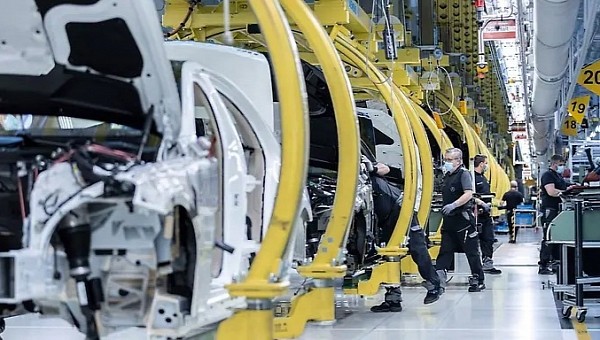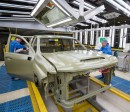The global chip shortage has massively disrupted the production of cars since 2020, and despite all analysts' forecasts and industry expectations, the semiconductor supply has remained extremely constrained in the last few months.
But as it turns out, the chip shortage has started to ease up, with automakers now increasing production after major struggles in the last quarter.
The good news comes from global tire makers, including Bridgestone, Pirelli, Michelin, and Yokohama. All have recently been quoted as saying that the demand for tires increased lately, particularly thanks to global car production gaining more pace.
In other words, the chip inventory is improving, so carmakers build more vehicles. As a result, they need more tires, so everybody in the industry is benefitting from this highly anticipated recovery in the semiconductor market.
The question, however, is just how long this chip inventory improvement is going to last.
For what it’s worth, large carmakers, including here General Motors and Ford, expect the constrained semiconductor inventory to remain a problem in 2023, which means that sooner or later, global car production could once again slow down.
Previously, tech giant Intel projected a return to pre-2020 levels in 2024.
The semiconductor supply recovery that’s currently being experienced by companies in the automotive world is partially fueled by the sales decline in the computing industry. Shipments of PCs and tablets have dropped as compared to 2020 and 2021, mostly as the upgrade super-cycle is almost complete.
The PC market, in particular, has witnessed a major boom since 2020, with sales of most form factors going through the roof as more people across the world started working remotely. Chipmakers, therefore, worked around the clock on filling orders for customers in this industry, whereas clients in the automotive market slowed down production following declining demand.
Now the trends are changing, but the semiconductor trends continue to be extremely dynamic, especially based on geopolitical instability, inflation, and the rising costs of raw materials.
The good news comes from global tire makers, including Bridgestone, Pirelli, Michelin, and Yokohama. All have recently been quoted as saying that the demand for tires increased lately, particularly thanks to global car production gaining more pace.
In other words, the chip inventory is improving, so carmakers build more vehicles. As a result, they need more tires, so everybody in the industry is benefitting from this highly anticipated recovery in the semiconductor market.
The question, however, is just how long this chip inventory improvement is going to last.
For what it’s worth, large carmakers, including here General Motors and Ford, expect the constrained semiconductor inventory to remain a problem in 2023, which means that sooner or later, global car production could once again slow down.
Previously, tech giant Intel projected a return to pre-2020 levels in 2024.
The semiconductor supply recovery that’s currently being experienced by companies in the automotive world is partially fueled by the sales decline in the computing industry. Shipments of PCs and tablets have dropped as compared to 2020 and 2021, mostly as the upgrade super-cycle is almost complete.
The PC market, in particular, has witnessed a major boom since 2020, with sales of most form factors going through the roof as more people across the world started working remotely. Chipmakers, therefore, worked around the clock on filling orders for customers in this industry, whereas clients in the automotive market slowed down production following declining demand.
Now the trends are changing, but the semiconductor trends continue to be extremely dynamic, especially based on geopolitical instability, inflation, and the rising costs of raw materials.






